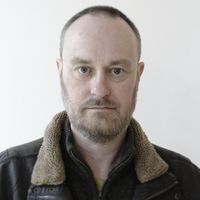Three alternative city breaks in Europe
Get away from the norm with a stay in the cities that tourists ignore, says Stuart Watkins.

Get the latest financial news, insights and expert analysis from our award-winning MoneyWeek team, to help you understand what really matters when it comes to your finances.
You are now subscribed
Your newsletter sign-up was successful
Want to add more newsletters?

Twice daily
MoneyWeek
Get the latest financial news, insights and expert analysis from our award-winning MoneyWeek team, to help you understand what really matters when it comes to your finances.

Four times a week
Look After My Bills
Sign up to our free money-saving newsletter, filled with the latest news and expert advice to help you find the best tips and deals for managing your bills. Start saving today!

If you enjoy hearing your friends say "where?" when you tell them your travel plans, then head to Minsk in Belarus, says Lonely Planet magazine, which ranks it first in its league of "offbeat" cities. The "spirit of the Soviet era lives on" there, yet Minsk is also increasingly cosmopolitan it's "no surprise to find sushi bars amid the Stalinist architecture".
The nine-mile-long Independence Avenue is the city's centrepiece, and a proposed World Heritage site. It runs from the Lenin statue in front of the imposing Belarusian government building near the avenue's southwest end to the alien-looking, 26-sided National Library at the other. The Museum of the Great Patriotic War, a tribute to the suffering and heroism of Belarusians during World War II(War.Museum.by/en), is also particularly worth a visit.
The Hotel Monastyrski (Monastyrski.by), a former Benedictine monastery, is a good place to stay.
MoneyWeek
Subscribe to MoneyWeek today and get your first six magazine issues absolutely FREE

Sign up to Money Morning
Don't miss the latest investment and personal finances news, market analysis, plus money-saving tips with our free twice-daily newsletter
Don't miss the latest investment and personal finances news, market analysis, plus money-saving tips with our free twice-daily newsletter
Hammans and mountains
Another city that you "never thought to visit but really should" is Skopje in Macedonia, says The Daily Telegraph. Its "grand hammams, tangle of cobbled streets and atmospheric food markets" make for "a European city break with a difference". From the hubbub of the Old Bazaar, the largest in the Balkans, take an uphill walk to the fragrant rose garden of the elegant 15th-century Mustafa Pasha Mosque, said to be Macedonia's most beautiful, says Sara Evans in the same paper. Mother Teresa was born in Skopje, and a museum in the city commemorates her life. Also worth a visit is the "beautiful Lake Matka in the mountains, just under eight miles away", where you can rent boats and explore to find ancient churches.
If you "want to do Skopje in style", opt for the "glamorous" Stonebridge hotel (Stonebridge-hotel.com), which has a mix of Ottoman and contemporary dcor and a Turkish bath.
Spoilt for choice in Romania

Sibiu is an important cultural centre in the south of Transylvania, says Georgeta Gheorghe in Business Review. The city's historic centre is "one of the best preserved in the country": its ancient fortified walls are still standing in places, the medieval streets are covered in cobble stone, and "the squares and towers will make you feel like you took a trip back in time". There is also an abundance of museums. The Brukenthal, established in 1817, is one of Romania's oldest, and its "eclectic" art collections feature more than 1,200 paintings by masters of European art. Nature lovers are spoilt for choice: mountain walks in the largely pristine countryside offer "picturesque vistas, fresh air and the opportunity to spot Romania's amazing wildlife".
MoneyWeek recommends a stay with the friendly people at SecretTransylvania.co.uk. The Inn on Balaban (GoBtF.com/innonbalaban/Home.html), a short drive away and close to Dracula's castle, is also well worth a visit.
and one further afield

When the nuclear bomb struck in Hiroshima near the end of World War II, it was assumed that nothing would grow within the bleak 1.6km blast zone for 75 years, says Becky Alexis-Martin in The Guardian. But today, Hiroshima is flourishing. Surrounding prefectures donated trees and they rapidly took root. The population is now back over one million, and there is a burgeoning gourmet scene, luxury shopping centres and a trendy nightlife. It is a city of vibrant green boulevards and open spaces, and the Hiroshima Peace Memorial Park is a lush and emotive focal point.
Lonely Planet recommends Sera Bekkan, which is a ten-minute walk from the park, and which offers authentic Japanese-style accommodation as well as hot public baths, a peaceful garden and good local cuisine (SeraBekkan.jp/english/).
Get the latest financial news, insights and expert analysis from our award-winning MoneyWeek team, to help you understand what really matters when it comes to your finances.

Stuart graduated from the University of Leeds with an honours degree in biochemistry and molecular biology, and from Bath Spa University College with a postgraduate diploma in creative writing.
He started his career in journalism working on newspapers and magazines for the medical profession before joining MoneyWeek shortly after its first issue appeared in November 2000. He has worked for the magazine ever since, and is now the comment editor.
He has long had an interest in political economy and philosophy and writes occasional think pieces on this theme for the magazine, as well as a weekly round up of the best blogs in finance.
His work has appeared in The Lancet and The Idler and in numerous other small-press and online publications.
-
 Early signs of the AI apocalypse?
Early signs of the AI apocalypse?Uncertainty is rife as investors question what the impact of AI will be.
-
 Reach for the stars to boost Britain's space industry
Reach for the stars to boost Britain's space industryopinion We can’t afford to neglect Britain's space industry. Unfortunately, the government is taking completely the wrong approach, says Matthew Lynn